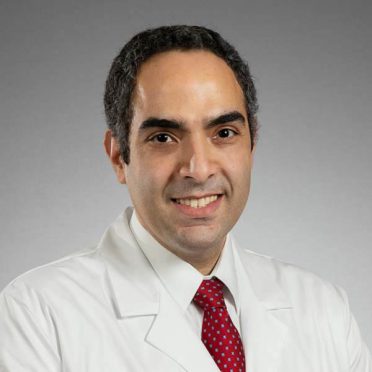If you’re having trouble swallowing food, you may be suffering from a condition that affects many older people.
“Dysphagia means trouble swallowing,” says Amir Masoud, MD, the medical co-director of Hartford HealthCare Neurogastroenterology and Motility Center. “You might struggle to move food from your mouth to your throat, feel food stuck in your chest or notice it takes too long to go down.”
Here’s what you need to know about dysphagia and why you should see your doctor without delay.
7 common causes of dysphagia.
Even if you know something is wrong with your swallowing, you may not know why.
Dr. Masoud shares a few possible causes for dysphagia:
- GERD (Gastroesophageal Reflux Disease): Acidic stomach contents flow back into the esophagus, causing irritation and muscle issues, leading to difficulty swallowing.
- Esophagus damage: Long-term acid reflux causes scarring and narrowing of the esophagus, making it hard for food to pass. This can sometimes lead to food getting lodged, known as “food impaction.”
- Hiatal hernia: Part of the stomach slides into the chest through the diaphragm, causing reflux and swallowing problems.
- Stroke: A stroke can affect swallowing muscles and nerves, making moving food from the mouth to the stomach difficult. A common complication is aspiration, where food or liquid accidentally enters the airway due to poor coordination.
- Esophageal cancer: Cancer of the esophagus can cause a blockage, making it hard to swallow. Though it’s incredibly rare, it is important to catch this early on for the best possible outcomes.
- Food allergies: Inflammation blocks the esophagus due to an allergic reaction to certain foods. Food allergy tests can’t directly diagnose this, but an endoscopy can.
- Neurological disorders: Conditions like Parkinson’s or multiple sclerosis can affect the nerves controlling swallowing, causing difficulty.
“While GERD and hiatal hernia are common causes of swallowing difficulties, dysphagia can also signal serious issues,” says Dr. Masoud. “Rarely, it may indicate esophageal cancer or other serious conditions. Seeing a doctor promptly is important to rule out these possibilities and get the right treatment.”
> Related: Having Trouble Swallowing? It Might Be Dysphagia
If you’re having trouble swallowing, try these next steps.
“Dysphagia is never normal and won’t go away on its own,” says Dr. Masoud. “It could signal a serious condition and needs evaluation.”
In addition to seeing a doctor, try these tips:
- Eat slowly: Eating too fast can worsen swallowing problems. Chew food well. If you have dental issues, see a dentist to help improve this important aspect of swallowing.
- Stay upright after eating: Lying down can worsen reflux. Stay upright for at least an hour. If you have heartburn, wait four hours before lying down.
Early diagnosis is crucial.
If you have dysphagia, you don’t need to suffer in silence.
“Diagnosing dysphagia early means quicker treatment and relief,” says Dr. Masoud.
Your doctor can advise on safe eating habits, foods to avoid and diet changes to help you swallow more easily until you get definitive treatment.
Early detection also prevents complications like malnutrition, dehydration, aspiration (and associated pneumonia) or choking.
“If you have dysphagia, see your doctor right away,” emphasizes Dr. Masoud. “Getting help early can make a significant difference in finding the best treatment to improve your health and quality of life.”



